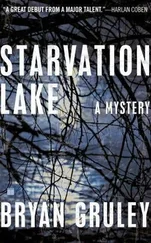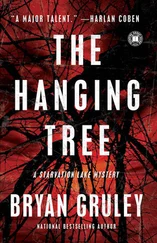Bryan Gruley - The Skeleton Box
Здесь есть возможность читать онлайн «Bryan Gruley - The Skeleton Box» весь текст электронной книги совершенно бесплатно (целиком полную версию без сокращений). В некоторых случаях можно слушать аудио, скачать через торрент в формате fb2 и присутствует краткое содержание. Жанр: Криминальный детектив, на английском языке. Описание произведения, (предисловие) а так же отзывы посетителей доступны на портале библиотеки ЛибКат.
- Название:The Skeleton Box
- Автор:
- Жанр:
- Год:неизвестен
- ISBN:нет данных
- Рейтинг книги:5 / 5. Голосов: 1
-
Избранное:Добавить в избранное
- Отзывы:
-
Ваша оценка:
- 100
- 1
- 2
- 3
- 4
- 5
The Skeleton Box: краткое содержание, описание и аннотация
Предлагаем к чтению аннотацию, описание, краткое содержание или предисловие (зависит от того, что написал сам автор книги «The Skeleton Box»). Если вы не нашли необходимую информацию о книге — напишите в комментариях, мы постараемся отыскать её.
The Skeleton Box — читать онлайн бесплатно полную книгу (весь текст) целиком
Ниже представлен текст книги, разбитый по страницам. Система сохранения места последней прочитанной страницы, позволяет с удобством читать онлайн бесплатно книгу «The Skeleton Box», без необходимости каждый раз заново искать на чём Вы остановились. Поставьте закладку, и сможете в любой момент перейти на страницу, на которой закончили чтение.
Интервал:
Закладка:
She reached into a cabinet over the sink and came out with an opened box of brown sugar Pop-Tarts. She tossed it to me. “Sorry, toaster’s on the fritz. Let’s get to work.”
She sat at her computer. I pulled up a chair. She reached under the desk. The machine whirred as she slipped a CD into it. A long minute passed. “Come on, piece of crap,” Joanie said. The screen went all white, then all blue. Then some words materialized in white at the top:
Subject: Breck, Wayland Ezra
Social Security Number: 292-41-6654
Date of Birth: 04/26/48
Birthplace: Detroit, Michigan
“So he’s… fifty-one. Almost fifty-two. He looks younger.” Must be the cross-eyed thing, I thought. “Jesus, you have his Social Security number?”
“I’m not going to give it to anybody.”
“You just gave it to me.”
“Frenchy’s pretty good at what he does.”
I wasn’t a big fan of Frenchy but figured it wouldn’t be smart to let Joanie know. “The freelancer, huh? Just how freelance is he?”
“Excuse me?”
“Do you pay him for this?”
She pulled one of her legs up under the other on her chair. The chartreuse polish on one foot’s toenails didn’t match the frosted pink on the other’s. “When you need something fast-you know, background stuff-Frenchy can get it faster than anyone.”
“Always first, frequently right,” I said.
“How did you know that?”
“Know what?”
“Frenchy says that.”
“So does Whistler. Must be a Free Press thing.”
“Brand X,” Joanie said. “Anyway, Frenchy said this is pretty cursory, he didn’t have much time, but… well, see what you think.”
I watched her click through more than forty pages of documents Frenchy had unearthed from the Internet and scanned onto the CD. Some of them-Breck’s birth certificate, his home address, a couple of newspaper photos, even the clipping I had seen in Mom’s lockbox-came from public sources. Others, like the Social Security number, derived from sources I preferred to know nothing about.
Joanie returned to the first screen. She opened a drawer, pulled out two fresh notebooks, and handed one to me.
“Wow,” I said. “You’re rich.”
“Huh?”
“Nothing.”
“Got a pen?” she said. “You can’t take the disk.”
“I’m not sure I want it. Why are you taking notes?”
“The Times covers Michigan, you know.”
Same old Joanie. She hit Enter.
Wayland Breck was born to Gregory Breck, a draftsman, and his homemaker wife, the former Susan Veronica Wayland. On the boy’s second Christmas Eve, his father was killed in a car crash with a drunken driver, who was issued a ticket and released. When Wayland was five, he moved with his mother to Livonia, a suburb near Detroit’s western border anchored by Michigan’s only Thoroughbred racetrack, since closed, and one of the first shopping malls in the United States, since demolished.
Breck graduated in 1966 from Livonia’s Franklin High, 1971 from Michigan State, 1975 from University of Detroit Law. A grainy copy of a photograph showed Breck in his cap and gown, unsmiling, in front of a stone clock tower.
“Typical lawyer, eh?” I said. “Not making money yet, not happy.”
“Maybe he’s just itchy in that robe.”
By the late 1970s, Breck’s name was showing up on state documents registering him as a principal-apparently the sole principal-in a firm called W. E. Breck Legal Associates, with an address in Livonia. Based on what Frenchy had unearthed, Breck did mostly routine domestic work-divorce, probate, minor tax issues, some workers’ compensation. His mother died in 1988. He divorced a wife of twelve years in 1990.
Joanie rapped the Page-down key seven or eight times. A series of blank pages flashed on the screen. “Here’s where it gets interesting.”
There followed a sequence of documents that had been copied and copied over again. As Joanie scrolled down, I saw what appeared to be many pages of legal filings, followed by two or three photocopies of newspaper clippings, followed by more legal filings, then clips, and so forth, until the pages went blank again.
All of the documents were dated in the 1990s.
Joanie backtracked to the beginning of the sequence. She sat back and folded her arms across her Rats jersey. “The guy was doing oppo research,” Joanie said.
“Opposition? Digging dirt on someone?”
“Not just anybody.” She leaned into the keyboard. “This really sucks, Gus.”
“You want-”
“Yeah.” She stood. “Take over.”
We traded seats. I began to tap through the documents on the screen. They were a collection of affidavits connected to various lawsuits filed in the circuit courts of Wayne and Oakland counties. The plaintiffs’ names were blacked out, but the case numbers varied, so I was able to count eight separate lawsuits. In each case, one of the defendants was the Archdiocese of Detroit.
My stomach tightened as the nature of the lawsuits became clear. Eight men, ranging in age from twenty-three to fifty-four, had accused priests at parishes in the archdiocese of sexually abusing them when they were young. Because the original complaints were not included, it was impossible to know the specifics of the charges.
For that, I was grateful.
“My God,” I said.
“Just like old times.”
In terse, clinical language, the affidavits delineated evidence that the accusers were mistaken, hypocritical, compromised, delusional, lying: “Mr. [NAME REDACTED] was terminated from his job as an assistant foreman at Detroit Diesel on February 4, 1993, because he had repeatedly shown up for work inebriated.” In these papers, the victims of abuse were now adulterers, debtors, wife beaters, gambling addicts, tax cheats: “Despite his protestations to the contrary, there is ample evidence that Mr. [NAME REDACTED] disregarded the plain truth in the pleadings related
to his ongoing divorce proceedings with [NAME REDACTED].”
Each affidavit was executed and signed by Wayland E. Breck, “Special Counsel,” on behalf of the law firm of Eagan, MacDonald amp; Browne.
“He wasn’t part of Eagan, MacDonald, was he?” I said.
“I don’t think so,” Joanie said. “Looks like he was just a contractor.”
“These are bad people, boy.”
The affidavits cited little if any supporting evidence for their assertions. Which made me think that the assertions were probably laced with falsehoods and half-truths while containing just enough verifiable fact-a tax document that could be interpreted in various ways, a statement from a jealous coworker, the testimony of an aggrieved wife-to put a scare into these men who already had been scared so badly as boys, to fling them back upon the dark certainty they had carried for most of their lives that whatever misfortune befell them was their fault and theirs alone.
As the archdiocese’s hired hatchet man, Breck had assembled affidavits that might give a man pause, especially a man laboring under a burden of guilt laid upon him in a rectory, a sacristy, a confessional. Maybe that man, that accuser, would withdraw lest he be forced to face his supposed flaws in public. Or maybe, at the very least, he would acquiesce in a mutual silence in return for money.
The photocopied newspaper clips that Frenchy had interspersed told this very story. Taken from the Times, the Free Press, the Birmingham Eccentric, the Northville Record, the articles, none more than six paragraphs long, told of how each of the men-all of them named in the stories-had agreed to settle with the archdiocese. The accusers declined to comment, in accordance with the terms of the settlements.
Other terms were not disclosed.
Joanie laid a hand on my shoulder and squeezed. “What are you thinking?” she said.
Читать дальшеИнтервал:
Закладка:
Похожие книги на «The Skeleton Box»
Представляем Вашему вниманию похожие книги на «The Skeleton Box» списком для выбора. Мы отобрали схожую по названию и смыслу литературу в надежде предоставить читателям больше вариантов отыскать новые, интересные, ещё непрочитанные произведения.
Обсуждение, отзывы о книге «The Skeleton Box» и просто собственные мнения читателей. Оставьте ваши комментарии, напишите, что Вы думаете о произведении, его смысле или главных героях. Укажите что конкретно понравилось, а что нет, и почему Вы так считаете.












